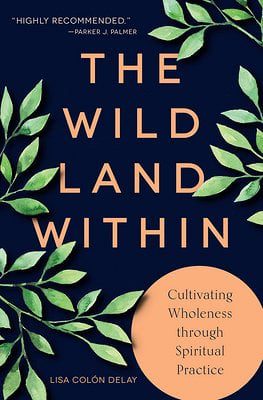
Featured Book for February 2022
The wilderness of the heart may be untamed, but you don’t need to go there alone.
In The Wild Land Within, spiritual companion and podcast host Lisa Colón DeLay offers a map to our often-bewildering inner terrain, inviting us to deepen and expand our encounters with God. Through specific spiritual practices from early desert monastics, as well as Latinx, Black, and Indigenous contemplatives, she guides us in cultivating lives of devotion.
In opening ourselves up to God’s healing, we will inevitably come across wounds we didn’t even know we had. Colón DeLay uses theology and neuroscience to help us work through buried fear or pain and find embodied spiritual healing from trauma.
A contemplative map to the wilderness of the heart, The Wild Land Within guides us through intimate geography in which God dwells.
